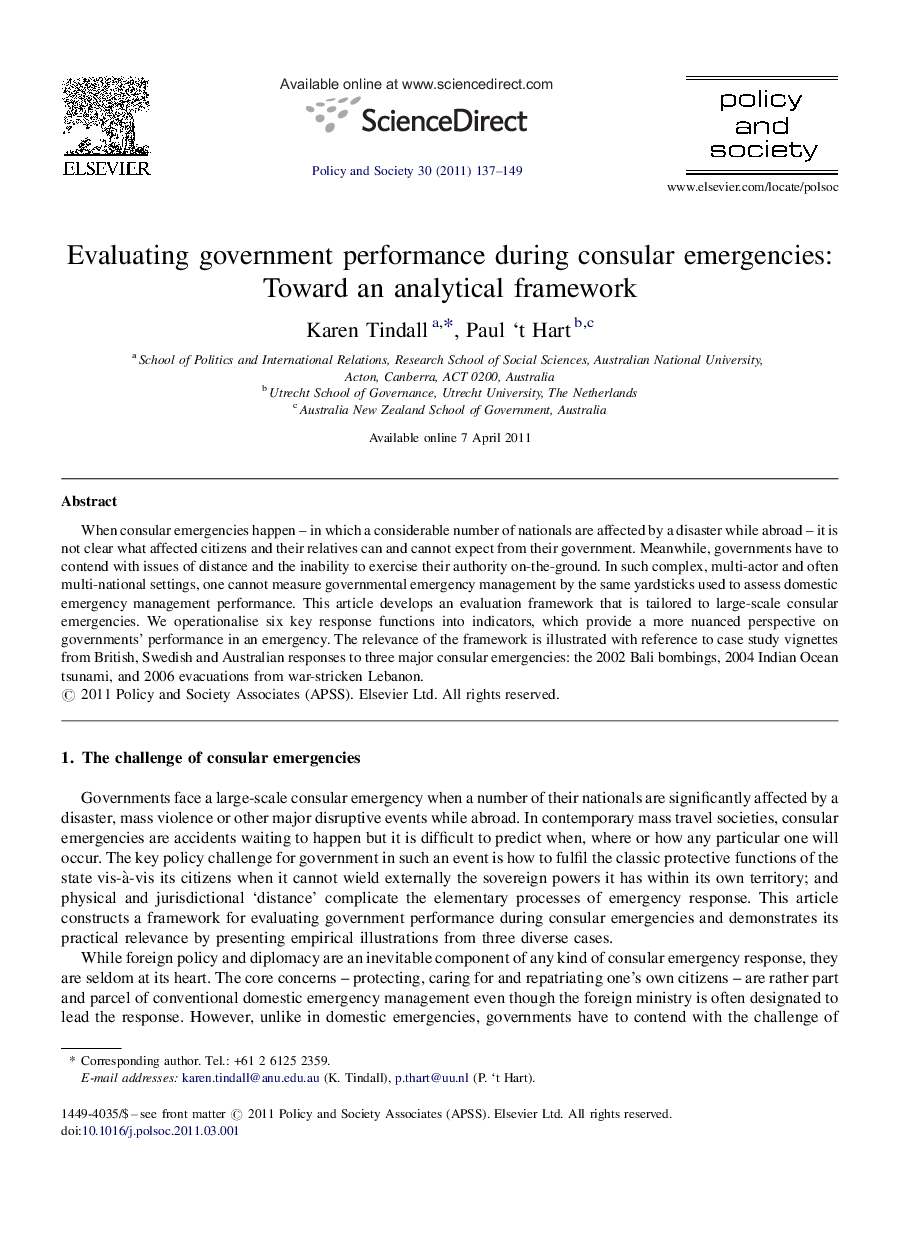| Article ID | Journal | Published Year | Pages | File Type |
|---|---|---|---|---|
| 1061578 | Policy and Society | 2011 | 13 Pages |
When consular emergencies happen – in which a considerable number of nationals are affected by a disaster while abroad – it is not clear what affected citizens and their relatives can and cannot expect from their government. Meanwhile, governments have to contend with issues of distance and the inability to exercise their authority on-the-ground. In such complex, multi-actor and often multi-national settings, one cannot measure governmental emergency management by the same yardsticks used to assess domestic emergency management performance. This article develops an evaluation framework that is tailored to large-scale consular emergencies. We operationalise six key response functions into indicators, which provide a more nuanced perspective on governments’ performance in an emergency. The relevance of the framework is illustrated with reference to case study vignettes from British, Swedish and Australian responses to three major consular emergencies: the 2002 Bali bombings, 2004 Indian Ocean tsunami, and 2006 evacuations from war-stricken Lebanon.
